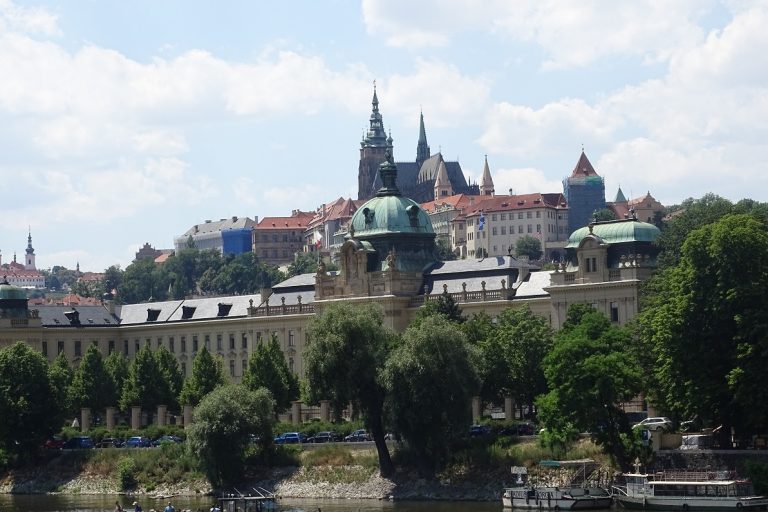As in other European countries, on 8 May the Czech Republic celebrates its liberation from the Nazi occupation during the Second World War – also referred to as “Victory Day”.
This occurrence marks a difference between Western and Eastern countries: while the former remember it on this day, the latter – most notably Russia – celebrate it a day later, on 9 May.
This holiday therefore carries a strong symbolic political meaning: after the Russian aggression started two years ago, Ukraine began celebrating it on 8 May, as a sign of distancing from Moscow.
The Czech Republic followed a similar path: during the communist regime Czechoslovakia celebrated Victory Day on 9 May – with military parades on Prague’s Letna plain – and only after the fall of the regime and the rapprochement with the West did both the Czech Republic and Slovakia start celebrating it on the 8th.
For the Czech Republic, the date has a deep historical resonance: in the late hours of 8 May 1945, the German Army sent to suppress the Prague Uprising surrendered, only a few hours before the arrival of the Soviet troops in the morning of 9 May.
The Czech Republic’s experience of liberation is quite interesting, as a small part of West Bohemia had already been liberated by the American troops at the order of famous General George Patton, who entered Plzeň on 6 May. The Prague Uprising had started on 5 May with the occupation of a radio station by the insurgents and the beginning of transmissions in Czech, but Patton’s Army was however stopped from proceeding east to Prague, as Supreme Allied Commander Dwight Eisenhower deemed it better not to interfere with the Soviet plans to enter the city first.
It was subsequently speculated by some that this sequence of events may have had a profound influence on the destiny of Czechoslovakia, and its 40-year period behind the Iron Curtain, as Czechs started perceiving the Soviets and the Communist Party as liberators and Western countries as passive spectators, echoing the events of the1938 Munich Agreement, when Western powers declined to protect Czechoslovakia from the German aggression.
The liberation of West Bohemia by the American forces is however still celebrated every year in Plzeň with reenactments, convoys, and remembrance of the deported Jewish community of Plzeň, which still hosts one of the biggest synagogues in Europe.
The city has been displaying a memorial dedicated to General Patton since 2005, and a monument called “Díky, Ameriko!”, ‘Thanks, America!’, close to the city centre.
Since the 1990s many veterans have been meeting in the Bohemian city during the days around 6 May, and though their numbers have dwindled as time has passed, their families still gather there to mark what was perceived by some Czechs as a missed opportunity to avoid another four decades of dictatorship after liberation from the Nazi regime.







